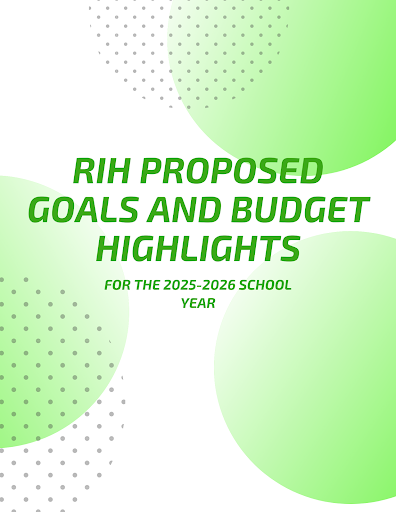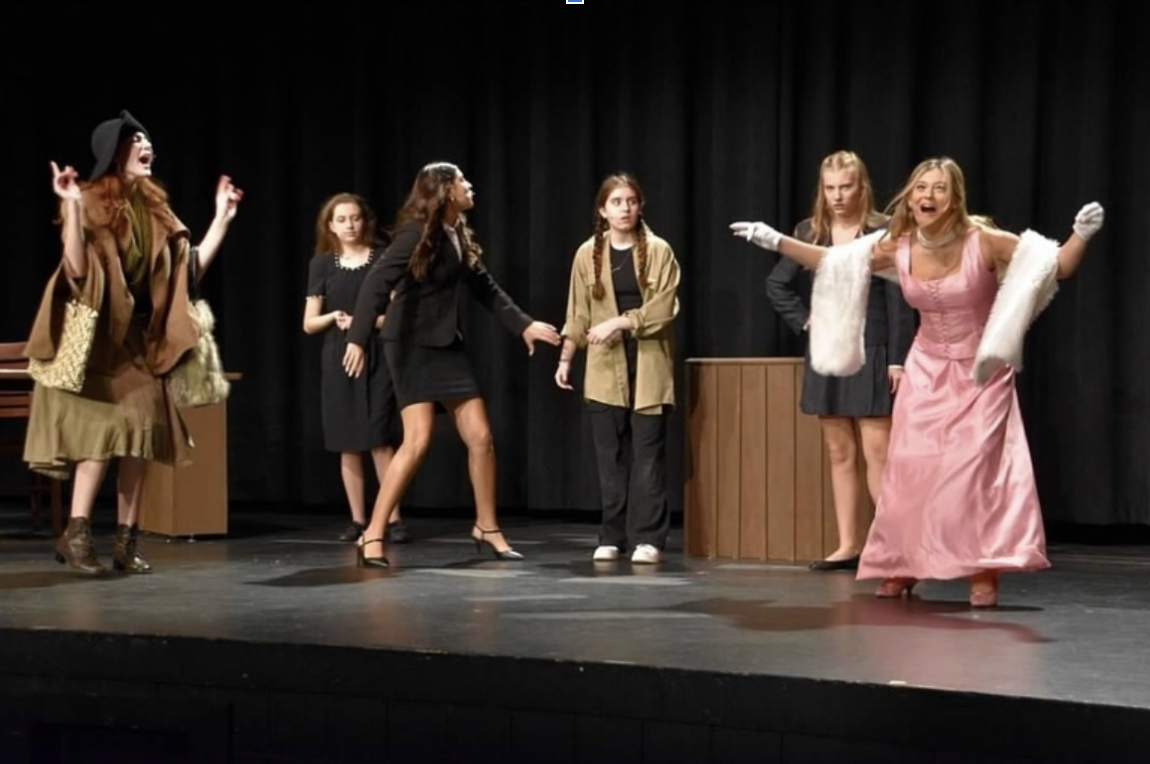In March, the Board of Education announced their proposed board goals and budget highlights for next school year (Copy of 2025-2026 Budget Presentation.pptx and Proposed Board Goals). Many of the plans revolved around managing enrollment between Ramapo and Indian Hills as well as ensuring future success in students.
BOE Proposed Goals
There are 4 goals to be implemented during the 2025 calendar year:
#1 : “Educational Excellence & Student Achievement”
The Board supports initiatives that strengthen academic rigor, enhance student learning results, and help the transition to block scheduling. There are three actions the board will take to achieve this goal. Firstly, developing a district-wide strategy to raise standardized test scores, specifically focusing on literacy, math, and science. Secondly, supporting the superintendent to evaluate and enhance Special Education Needs. Finally, supporting the superintendent to establish a “smooth transition” into the new block scheduling; this will be evaluated through teacher and student feedback to make any necessary changes.
#2: “Reviewing Enrollment Balance & individual school programs”
Through two planned actions, the Board hopes to create innovative options at both Ramapo and Hills to balance student enrollment. In the 2023-2024 school year, Hills had 694 students while Ramapo had 1,188 students meaning there was a 494 difference of students between the two schools (National Center for Education Statistics). To begin, they hope to create this balance by balancing resources and opportunities at both schools. Additionally, they would like to expand specialized programming like the UP Business Program and the UP Engineering Program. Both of these actions would be monitored by looking at any changes in enrollment and interest. Senior Angelina Nastaskin was a proud student of the UP Engineering program for three years and shares, “The Engineering UP Program played a pivotal role in my decision to attend Ramapo. It provided me with the foundation I needed to pursue my passion for architecture and set me on the path to where I am today.” She continues, “Thanks to the program, I was able to gain the skills and experience necessary to successfully enter a Master’s Program in Architecture.”
#3: “Fiscal Responsibility & Strategic Planning”
The purpose of this will be to guarantee responsible financial management through supporting budgeting, cost-saving measures, and revenue growth. This is also planned to be done through two actions. The first would be reviewing and revising a 5/10-year capital improvement plan with the focus of prioritizing necessary projects. The second will be to work with the new business administrator to assess the “financial health of the district” and to implement cost savings and revenue-generating strategies.
#4: “Governance, Communication, and Community Engagement”
The Board aims to “Foster a culture of collaboration, transparency, and ethical governance while strengthening community engagement” through three initiatives. Firstly, doing more than the required annual ethics and governance training for board members. Secondly, establishing information protocols for the communication and information of board members. Thirdly, increasing public engagement through newsletters, website updates, social media, and community forums across platforms.
Preliminary Budget Highlights for 2025-2026
As seen in the proposed goals, the district has been working on how spending can be efficiently and effectively allocated. Last month on March 17, Ms. DeMarco, Me. Zeno, and Dr. Mauriello presented the 2025-2026 Preliminary Budget Highlights showcasing the budget review process, facility improvements, and more.
In the presentation, they state that their mission is to guarantee that students graduate with the skills, knowledge, and qualities for success and a fulfilling life. Likewise, they claim that the district’s budget should reflect these core values and goals.
One eye-catching highlight in the presentation was the plan to “Continue Focus On HVAC Improvements” (Slide 17). In January of this year, the Ramapo Administration shared that while there is currently a rooftop unit in the cafeteria equipped for air conditioning, it was ultimately never hooked up. This was done in an effort to maintain equality between both schools since Hills’ cafeteria does not have air conditioning. As the beginning and final months of the school year get increasingly warmer, it is no doubt that the lack of air conditioning in the school causes discomfort for students. Senior Sarah Taouafe comments, “I understand the desire for equality, though it is unfortunate that neither school has a functioning AC system in what is often the hottest part of the school, especially as we head into the warmer months.”
There is no doubt that Raiders look forward to the future plans for next school year and we can’t wait to see them come to life!






